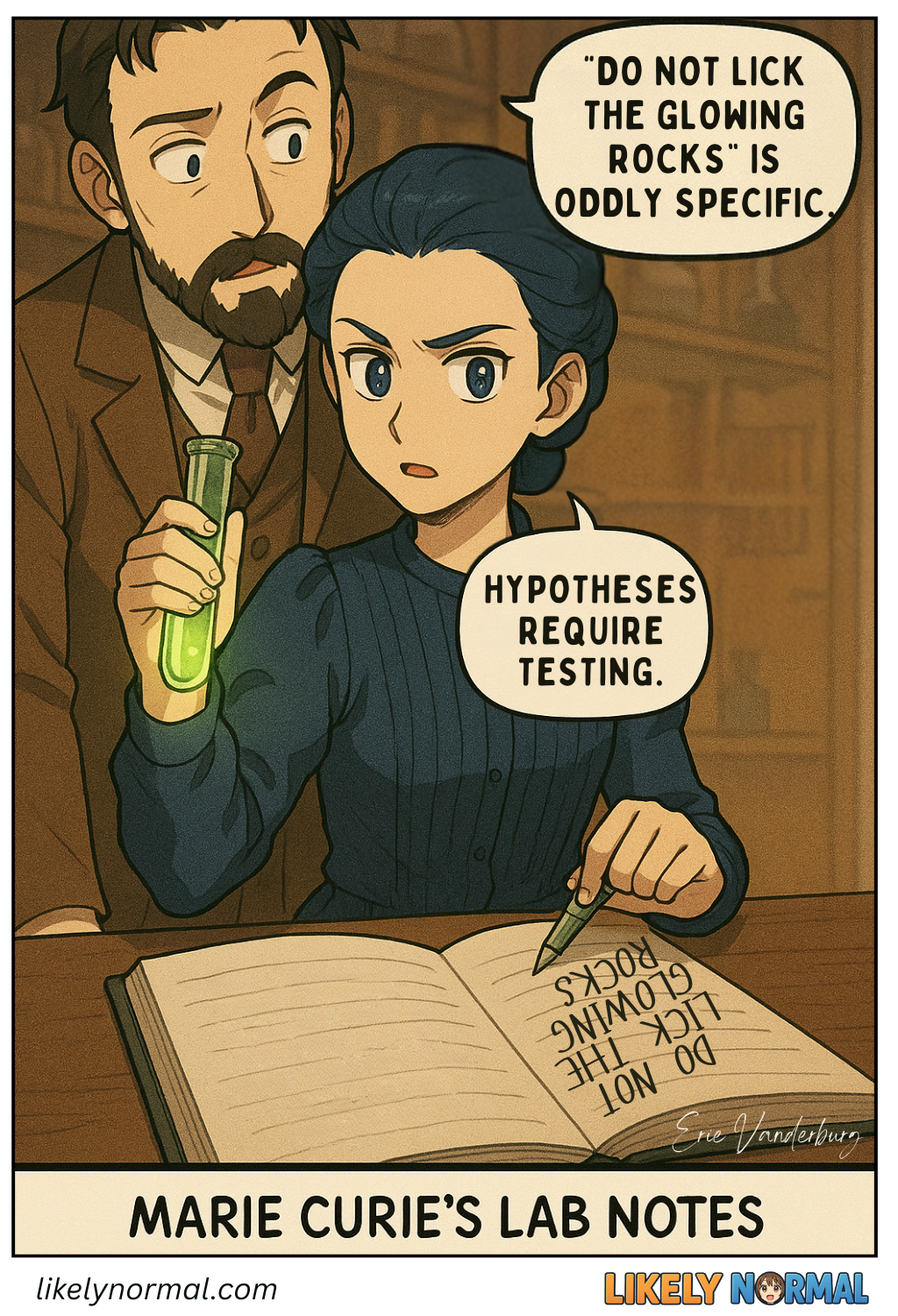Marie Curie’s Lab Notes
Getting a PhD is basically just a 5-year hazing ritual where you’re forced to prove, beyond a reasonable doubt, that you can suffer elegantly. And at the heart of this beautiful misery is hypothesis testing—the academic version of screaming into the void and hoping it screams back “p < 0.05.”
The Five Stages of Hypothesis Grief
-
Denial – “Of COURSE my experiment will work! My hypothesis is flawless! The data will bow before my genius!”
(Spoiler: The data does not bow. The data laughs in spreadsheet.) -
Anger – “Why does my control group look weirder than my experimental group? Who touched my samples? WAS IT YOU, STEVE?!”
(Steve did not touch your samples. Steve is a plant. You’ve been alone in the lab for 72 hours.) -
Bargaining – “Okay, universe, if I just delete this one outlier, we can call it significant, right? …Right?”
(Your advisor’s disappointed stare says no.) -
Depression – “I’ve spent three years proving that worms might prefer jazz over classical. What am I doing with my life?”
(The worms, for the record, do not care. They are worms.) -
Acceptance – “Fine. My hypothesis was wrong. But look! This weird tangential result is kind of interesting… right? …Guys?”
(This is how you pivot to a new dissertation topic at year 4.)
The Real Hypothesis You’re Testing
-
Null Hypothesis (H₀): “I am a competent researcher who knows what I’m doing.”
-
Alternative Hypothesis (H₁): “I am a raccoon in a lab coat, and everything is on fire.”
(Spoiler: p < 0.001 for H₁.)
When Stats Become Your Nemesis
-
You start dreaming about p-values. Not sexy dreams. Stress dreams where a t-test chases you down a hallway.
-
You develop a superstition that your data behaves better when you wear your “lucky” socks (unwashed since 2014).
-
You gaslight yourself into thinking “non-significant trends are still trends!” (They’re not. Your committee will roast you.)
The Silver Lining
Somewhere around year 5, you have an epiphany: the real hypothesis was the friends we made along the way. Just kidding—it’s that no one knows what they’re doing, and half of science is just failing until something accidentally works.
So keep at it, future Dr. You! Someday, you’ll look back and laugh at all the times you cried over a broken ANOVA. And then you’ll cry again, because postdoc salaries.

Discussion ¬